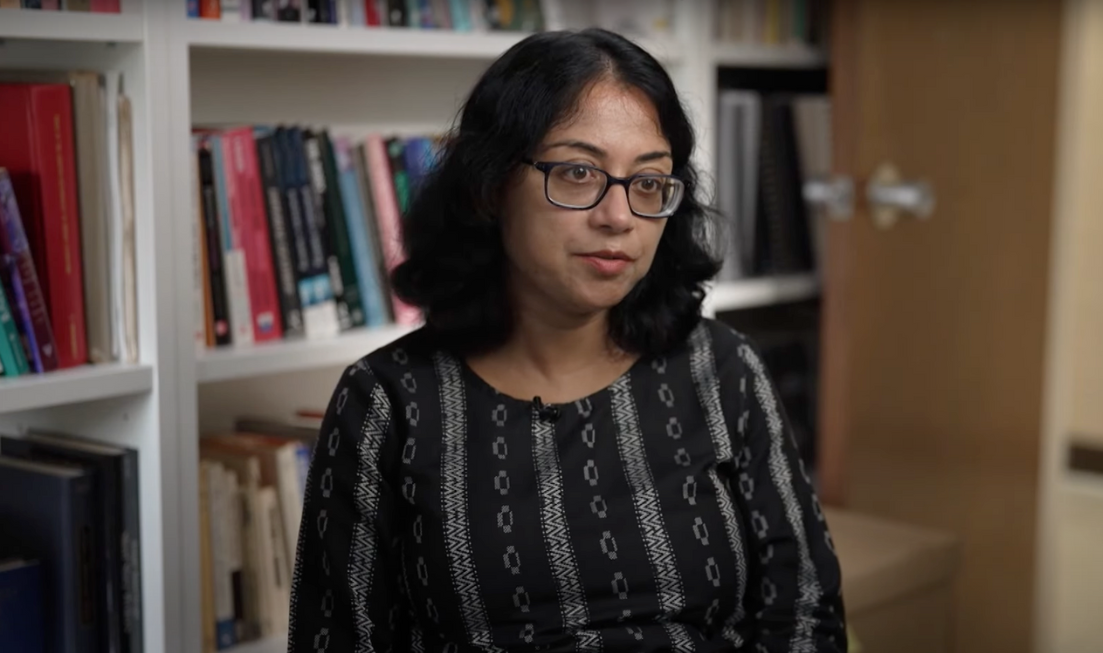McMaster professor helps Canadians understand 1985 Air India bombing as part of our history

Forty years after the largest mass murder in Canadian history, Professor Chandrima Chakraborty's efforts to bring the tragedy into the Canadian consciousness are bearing fruit. Two new documentaries on the Air India bombing will screen this weekend, on the eve of the anniversary. (CBC News image)
BY Wade Hemsworth
June 20, 2025
June 23 will mark the 40th anniversary of the bombing of Air India Flight 182 on its way to India from Montreal.
All 329 aboard, including 268 Canadians — most of them of Indian origin — were killed when the plane exploded off the coast of Ireland.
Until the attacks of Sept. 11, 2001, the bombing was history’s most deadly act of air-based terrorism, and it remains Canada’s worst mass murder.
Still, Canadians have not widely accepted the Air India bombing as part of their own history. A 2023 Angus Reid survey found that nine in 10 Canadians had little or no knowledge of the event.
It’s a deficit that McMaster’s Chandrima Chakraborty and her colleagues have spent more than a decade working to correct.
Canadians largely perceived the Air India bombing as a foreign event, having been motivated by Indian politics and having taken place thousands of kilometres from Canada, says Chakraborty, a professor of English and Cultural Studies and the acting associate dean of the Faculty of Humanities, says.
The protracted criminal proceedings and belated public inquiry and the tepid government apology that followed 25 years later served only to confound those issues, she says.
Through her scholarship and advocacy, Chakraborty has been working with colleagues and the families of victims to set the Air India bombing into its appropriate place in the Canadian consciousness.
As the world marks the 40th anniversary of the bombing, that work is bearing fruit.
Chakraborty and her McMaster colleague Amber Dean organized a conference in late May focusing on remembrance and scholarship. A highlight of the conference was the announcement that McMaster was launching a special library archive featuring physical and digital material related to the Air India bombing and its cultural impact.
The campus conference sold out, and participants included many victims’ family members. As the victims’ family members age, the creation of the archive provides them with assurance that evidence of their loss — Canada’s loss — will be permanently recorded there, Chakraborty says.
“Establishing this archive alone will not be enough to elevate the memory of Flight 182 to the place it deserves,” Chakraborty wrote recently in an article for The Conversation Canada. “But at least it establishes a rich, permanent academic and personal legacy for the community of mourners, and for the Canadian and global public to find it, use it and learn from its many lessons.”
CBC and OMNI TV have recently produced separate documentaries about the bombing and its legacy, both featuring Chakraborty. The CBC documentary, Two Suitcases: Anatomy of the Air India Bombing, is set to air Sunday, June 22, the eve of the anniversary.
The OMNI documentary, Forgotten Canadians: The Victims of Air India Flight 182, will air in English June 20 at 6:30 p.m., and June 23 at noon; and in Hindi June 22 at 7:30 p.m., and June 23 at 8:30 p.m.
The Canadian Press and other outlets have interviewed Chakraborty for stories leading up to the anniversary of the tragedy.
In collaboration with the families of the 1985 victims, a new fund has been established to support efforts to preserve and enhance the memory of Flight 182 and its legacy, including the ongoing enhancement of the new archive.


